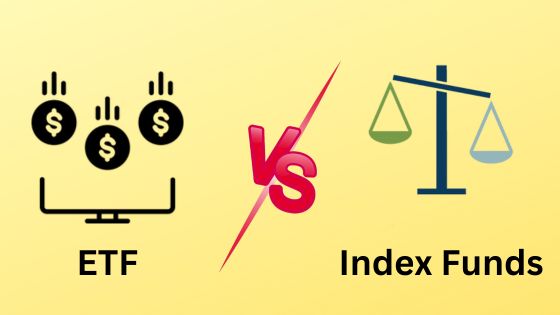Passive mutual fund schemes are rapidly gained popularity all over the world in the last 2 decades or so, especially in developed markets like the US. Exchange traded fund are passive mutual funds. In the last 3 years passive mutual fund schemes AUM in India has tripled, at a CAGR of over 47%.


What are passive funds?
There are two types of passive mutual funds – exchange traded funds or ETF and index funds.
Passive funds invest in a basket of securities which replicate a market benchmark index. Weights of securities in the fund mirror the weights of the constituents in the index. Contrary to actively managed mutual fund schemes, passive funds do not aim to beat the market.
What are exchange traded funds?
Exchange traded funds or ETFs are passive schemes tracking market benchmark indices like Nifty, Sensex etc. ETFs do not aim to beat the market benchmark index they are tracking; they simply aim to give market returns. Exchange traded funds are listed in stock exchanges and trade like any other shares or securities. To invest in ETF, the investor needs to have demat and trading account with a broker.
What are index funds?
Index funds are also passive mutual fund investment which track market benchmark indices and they are very similar to ETF schemes but with one major difference between them. To invest in index funds, you do not need demat or trading account as they are just like any other open ended mutual fund schemes.
ETFs versus Index Funds
| ETFs | Index Funds |
|---|---|
| You must have a demat and trading account to invest in ETFs. You can contact a stock broker and open a demat and trading account. | Any investor who is mutual fundKYC compliant can invest in index funds and there is no need to have a demat and trading account. |
| ETFs can be bought or sold only on stock exchanges, post the NFO period | You can invest / redeem / switch in index funds with the AMC just like any other open ended mutual fund schemes. |
| Minimum investment amount in an ETF is price of one unit. You can buy one or more units in your demat account from the stock exchanges. | Generally, the minimum amount for one-time investment in an index funds is Rs 5,000and the additional purchases amount is Rs 1,000. |
| ETFs do not provide investment through systematic investment plans. | You can invest in Index Funds through SIP like open ended mutual fund schemes. |
| As the ETF transactions take place on the ongoing market prices during the trading hours in stock exchanges just like any stock.Therefore, the current market price of an ETF may be higher or lower than the actual NAVof the ETF which you get to know at the end of the market hours. | Index fund transactions are based on end of the day’s NAV which is declared at the end of the market hours. |
| ETF costs are usually much lower than the index funds. However, to invest in ETF, you incur costs like brokerage charges, STT, GST and stamp duty etc. | Index fund costs may be higher than ETF schemes, but they are much lower than actively managed mutual fund schemes. |
| No Income Distribution cum Capital Withdrawal (IDCW) option is available with ETFs. The default option is growth only. | Index funds have both, growth orIDCW options including IDCW reinvestment. You can decide the option based on your actual investment needs. |















